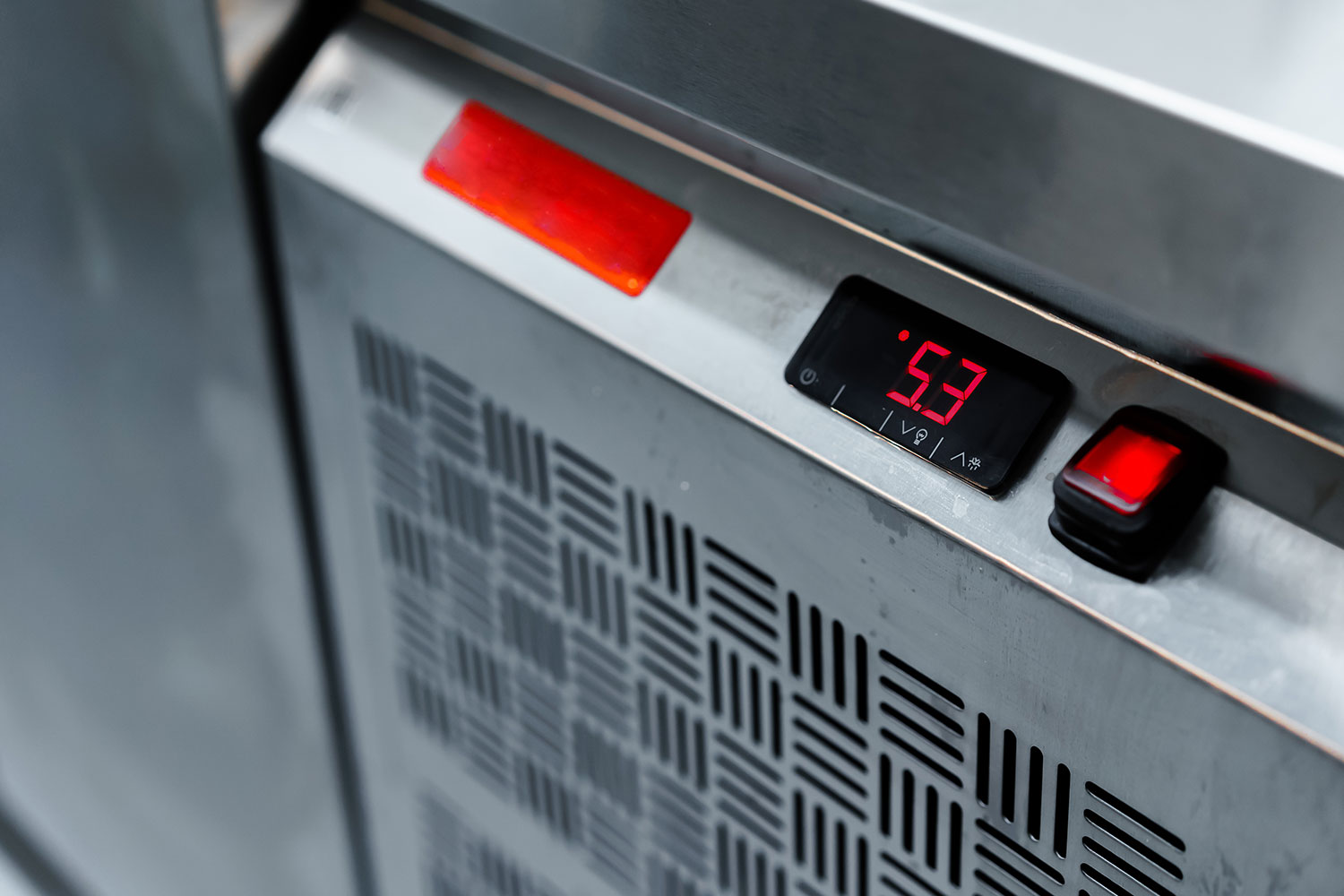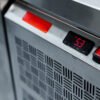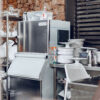Commercial refrigeration equipment is an essential part of many businesses, from restaurants and grocery stores to hospitals and laboratories. Proper maintenance is key to ensuring these units function efficiently and reliably, minimizing the risk of costly repairs and downtime. In this comprehensive guide, we’ll explore five crucial tips for maintaining your commercial refrigeration equipment, helping you extend its lifespan and keep your business running smoothly.
1. Schedule Regular Cleaning
Regular cleaning is one of the simplest yet most effective ways to maintain your commercial refrigeration equipment. Dirt, grease, and debris can accumulate over time, reducing efficiency and leading to breakdowns. Here’s how to ensure your equipment stays clean:
Clean the Interior and Exterior
- Interior: Remove all items from the unit and use a mild detergent and warm water to clean the shelves, walls, and floor. Rinse thoroughly to avoid leaving behind chemical residues that can affect stored food or other materials.
- Exterior: Wipe down the exterior with a damp cloth and a non-abrasive cleaner to remove dust and grime. This is especially important for stainless steel units to prevent rust and maintain their appearance.
Clean the Condenser Coils
The condenser coils are critical for heat exchange. Over time, dust and debris can accumulate on them, forcing the unit to work harder and increasing energy consumption. To clean the coils:
- Turn off and unplug the unit.
- Use a soft brush or vacuum to remove dirt and debris.
- For stubborn grime, use a coil cleaner recommended by the manufacturer.
Empty and Clean the Drain Pan
The drain pan collects condensation from the unit and can become a breeding ground for bacteria and mold. Empty and clean it regularly to prevent clogs and unpleasant odors.
2. Monitor and Maintain Proper Temperature Levels
Maintaining the correct temperature is vital for the efficiency of your refrigeration equipment and the safety of its contents. Improper temperature settings can lead to spoilage, increased energy consumption, or equipment failure.
Check Temperature Settings Regularly
- Use a thermometer to verify that the temperature inside the unit matches the set point.
- Ideal temperature ranges for common applications include:
- Refrigerators: 35°F to 38°F (1.7°C to 3.3°C)
- Freezers: -10°F to 0°F (-23.3°C to -17.8°C)
Monitor Door Seals and Gaskets
Damaged or loose door seals can cause cold air to escape, forcing the unit to overwork. Inspect the gaskets regularly for cracks, tears, or wear and replace them as needed.
Avoid Overloading the Unit
Overloading the unit with too many items can block air circulation, leading to uneven cooling and increased strain on the compressor. Arrange items to allow proper airflow and avoid placing hot items directly into the unit.
3. Perform Routine Inspections
Routine inspections can help you catch small issues before they become major problems. Develop a maintenance checklist to ensure your equipment stays in top shape.
Inspect Electrical Components
Check power cords, plugs, and connections for signs of wear or damage. Faulty electrical components can pose a fire hazard or cause the unit to malfunction.
Examine Fans and Motors
Fans and motors play a key role in maintaining airflow and cooling efficiency. Inspect them for unusual noises, vibrations, or visible damage. Clean fan blades and lubricate motors as needed, following the manufacturer’s recommendations.
Check Refrigerant Levels
Low refrigerant levels can cause the unit to lose cooling efficiency. If you notice that the unit isn’t cooling properly, consult a licensed technician to check and refill the refrigerant.
4. Establish a Maintenance Schedule
Preventive maintenance is essential for avoiding unexpected breakdowns and costly repairs. Partnering with a professional service provider can help you keep your equipment in excellent condition.
A. Follow Manufacturer Guidelines
Review the manufacturer’s manual for specific maintenance instructions and recommended service intervals. Following these guidelines ensures your unit remains under warranty and operates efficiently.
B. Schedule Professional Inspections
Hire a qualified technician to perform comprehensive inspections and tune-ups at least twice a year. Professional services typically include:
- Checking refrigerant levels.
- Inspecting and cleaning the evaporator and condenser coils.
- Testing electrical connections and controls.
- Assessing overall system performance.
C. Keep Maintenance Records
Document all maintenance activities, including cleaning, repairs, and professional inspections. This record can help you track the unit’s performance and identify recurring issues, as well as provide valuable information for warranty claims.
5. Train Your Staff on Proper Usage
Your refrigeration equipment’s performance depends not only on maintenance but also on how it’s used. Proper training ensures that employees handle the equipment correctly, reducing the risk of damage and inefficiency.
Educate Staff on Best Practices
- Avoid leaving doors open for extended periods.
- Load and unload items efficiently to minimize temperature fluctuations.
- Ensure items are evenly distributed to prevent overloading.
Teach Basic Troubleshooting
Train staff to recognize common issues, such as unusual noises, frost buildup, or fluctuating temperatures. Prompt reporting of these problems can prevent further damage.
Emphasize Cleaning Responsibilities
Assign cleaning tasks as part of your team’s routine duties. Regularly cleaning shelves, gaskets, and other components helps maintain hygiene and equipment efficiency.
The Benefits of Regular Maintenance
Investing time and effort in maintaining your commercial refrigeration equipment yields numerous benefits, including:
- Reduced Energy Costs: Clean and well-maintained units consume less energy, saving you money on utility bills.
- Longer Equipment Lifespan: Proper maintenance prevents wear and tear, extending the life of your equipment.
- Improved Reliability: Regular upkeep minimizes the risk of unexpected breakdowns and costly repairs.
- Compliance with Health and Safety Standards: Maintaining clean and functional refrigeration units ensures compliance with food safety and industry regulations.
- Enhanced Business Reputation: Reliable refrigeration equipment supports smooth operations, keeping customers satisfied and your business running seamlessly.
Commercial refrigeration equipment is a vital asset for many businesses, and its proper maintenance should never be overlooked. By following these five important tips—cleaning regularly, monitoring temperature levels, performing routine inspections, establishing a maintenance schedule, and training your staff—you can ensure your equipment remains efficient, reliable, and long-lasting.
At Arrow Ice in Houston, Texas, we understand the importance of dependable refrigeration for your business. Whether you need expert advice, maintenance support, or high-quality refrigeration equipment, our team is here to help. Contact us today to learn more about how we can assist you in keeping your refrigeration equipment in peak condition!






